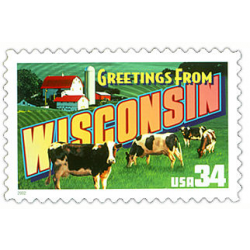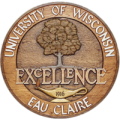
For our 2024 rankings of prelicensure BSN programs, the research team at Nursing Schools Almanac compiled an extensive database of student performance on the National Council Licensure Examination for Registered Nurses (NCLEX-RN). Aspiring registered nurses in the United States must pass this examination before they may commence practice. Thus, student performance on the NCLEX-RN exam provides an excellent benchmark for comparing the relative quality of bachelor’s degree programs.
We used our database to calculate each program’s NCLEX-RN pass rate among first-time test-takers. This is the standard program assessment metric reported by Pearson Vue, the test’s administrator. It was also (until recently) the primary evaluation metric used by the Wisconsin Board of Nursing. Whenever possible, we calculated this first-time NCLEX-RN pass rate over an extensive period of time, typically the past decade of student performance. We then used this metric to rank all of Wisconsin’s prelicensure BSN programs accordingly.
 #1: Carroll University
#1: Carroll University
100 North East Avenue
Waukesha, WI 53186
https://www.carrollu.edu
98.0% first-time NCLEX pass rate
Bachelor of Science in Nursing
Average of 57 students graduated per year
Data analyzed from 2011 through 2020
 #2: Maranatha Baptist University
#2: Maranatha Baptist University
745 West Main Street
Watertown, WI 53094
https://www.mbu.edu
96.6% first-time NCLEX pass rate
Bachelor of Science in Nursing
Average of 12 students graduated per year
Data analyzed from 2011 through 2020
 #3: University of Wisconsin - Oshkosh
#3: University of Wisconsin - Oshkosh
800 Algoma Boulevard
Oshkosh, WI 54901
https://www.uwosh.edu
96.1% first-time NCLEX pass rate
Bachelor of Science in Nursing
Average of 198 students graduated per year
Data analyzed from 2011 through 2020
 #4: Bellin College
#4: Bellin College
3201 Eaton Road
Green Bay, WI 54311
https://www.bellincollege.edu
94.1% first-time NCLEX pass rate
Bachelor of Science in Nursing
Average of 95 students graduated per year
Data analyzed from 2011 through 2020
 #5: University of Wisconsin - Eau Claire
#5: University of Wisconsin - Eau Claire
105 Garfield Avenue
Eau Claire, WI 54702
https://www.uwec.edu
93.1% first-time NCLEX pass rate
Bachelor of Science in Nursing
Average of 117 students graduated per year
Data analyzed from 2011 through 2020
 #6: Concordia University Wisconsin
#6: Concordia University Wisconsin
12800 North Lake Shore Drive
Mequon, WI 53097
https://www.cuw.edu
92.4% first-time NCLEX pass rate
Bachelor of Science in Nursing
Average of 42 students graduated per year
Data analyzed from 2011 through 2020
 #7: University of Wisconsin - Madison
#7: University of Wisconsin - Madison
500 Lincoln Drive
Madison, WI 53706
https://www.wisc.edu
92.1% first-time NCLEX pass rate
Bachelor of Science in Nursing
Average of 151 students graduated per year
Data analyzed from 2011 through 2020
 #8: Viterbo University
#8: Viterbo University
900 Viterbo Drive
La Crosse, WI 54601
https://www.viterbo.edu
92.1% first-time NCLEX pass rate
Bachelor of Science in Nursing
Average of 88 students graduated per year
Data analyzed from 2011 through 2020
 #9: Edgewood College
#9: Edgewood College
1000 Edgewood College Drive
Madison, WI 53711
https://www.edgewood.edu
91.9% first-time NCLEX pass rate
Bachelor of Science in Nursing
Average of 103 students graduated per year
Data analyzed from 2011 through 2020
 #10: Wisconsin Lutheran College
#10: Wisconsin Lutheran College
8800 West Bluemound Road
Milwaukee, WI 53226
https://www.wlc.edu
91.6% first-time NCLEX pass rate
Bachelor of Science in Nursing
Average of 17 students graduated per year
Data analyzed from 2012 through 2020
 #11: Milwaukee School of Engineering
#11: Milwaukee School of Engineering
1025 North Broadway
Milwaukee, WI 53202
https://www.msoe.edu
89.7% first-time NCLEX pass rate
Bachelor of Science in Nursing
Average of 50 students graduated per year
Data analyzed from 2011 through 2020
 #12: Cardinal Stritch University
#12: Cardinal Stritch University
6801 North Yates Road
Milwaukee, WI 53217
https://www.stritch.edu
89.5% first-time NCLEX pass rate
Bachelor of Science in Nursing
Average of 8 students graduated per year
Data analyzed from 2017 through 2020
 #13: Alverno College
#13: Alverno College
3400 South 43rd Street
Milwaukee, WI 53234
https://www.alverno.edu
89.0% first-time NCLEX pass rate
Bachelor of Science in Nursing
Average of 198 students graduated per year
Data analyzed from 2011 through 2020
 #14: Marquette University
#14: Marquette University
1250 West Wisconsin Avenue
Milwaukee, WI 53233
https://www.marquette.edu
88.7% first-time NCLEX pass rate
Bachelor of Science in Nursing
Average of 150 students graduated per year
Data analyzed from 2011 through 2020
 #15: Marian University
#15: Marian University
45 South National Avenue
Fond du Lac, WI 54935
https://www.marianuniversity.edu
84.9% first-time NCLEX pass rate
Bachelor of Science in Nursing
Average of 85 students graduated per year
Data analyzed from 2011 through 2020
 #16: University of Wisconsin - Milwaukee
#16: University of Wisconsin - Milwaukee
2200 East Kenwood Boulevard
Milwaukee, WI 53201
https://www.uwm.edu
83.5% first-time NCLEX pass rate
Bachelor of Science in Nursing
Average of 208 students graduated per year
Data analyzed from 2011 through 2020
 #17: Herzing University - Milwaukee / Brookfield
#17: Herzing University - Milwaukee / Brookfield
555 South Executive Drive
Brookfield, WI 53005
https://www.herzing.edu
83.2% first-time NCLEX pass rate
Bachelor of Science in Nursing
Average of 58 students graduated per year
Data analyzed from 2013 through 2020
 #18: Herzing University - Madison
#18: Herzing University - Madison
5218 East Terrace Drive
Madison, WI 53718
https://www.herzing.edu
82.2% first-time NCLEX pass rate
Bachelor of Science in Nursing
Average of 58 students graduated per year
Data analyzed from 2013 through 2020
 #19: Herzing University - Kenosha
#19: Herzing University - Kenosha
4006 Washington Road
Kenosha, WI 53144
https://www.herzing.edu
81.6% first-time NCLEX pass rate
Bachelor of Science in Nursing
Average of 58 students graduated per year
Data analyzed from 2013 through 2020
